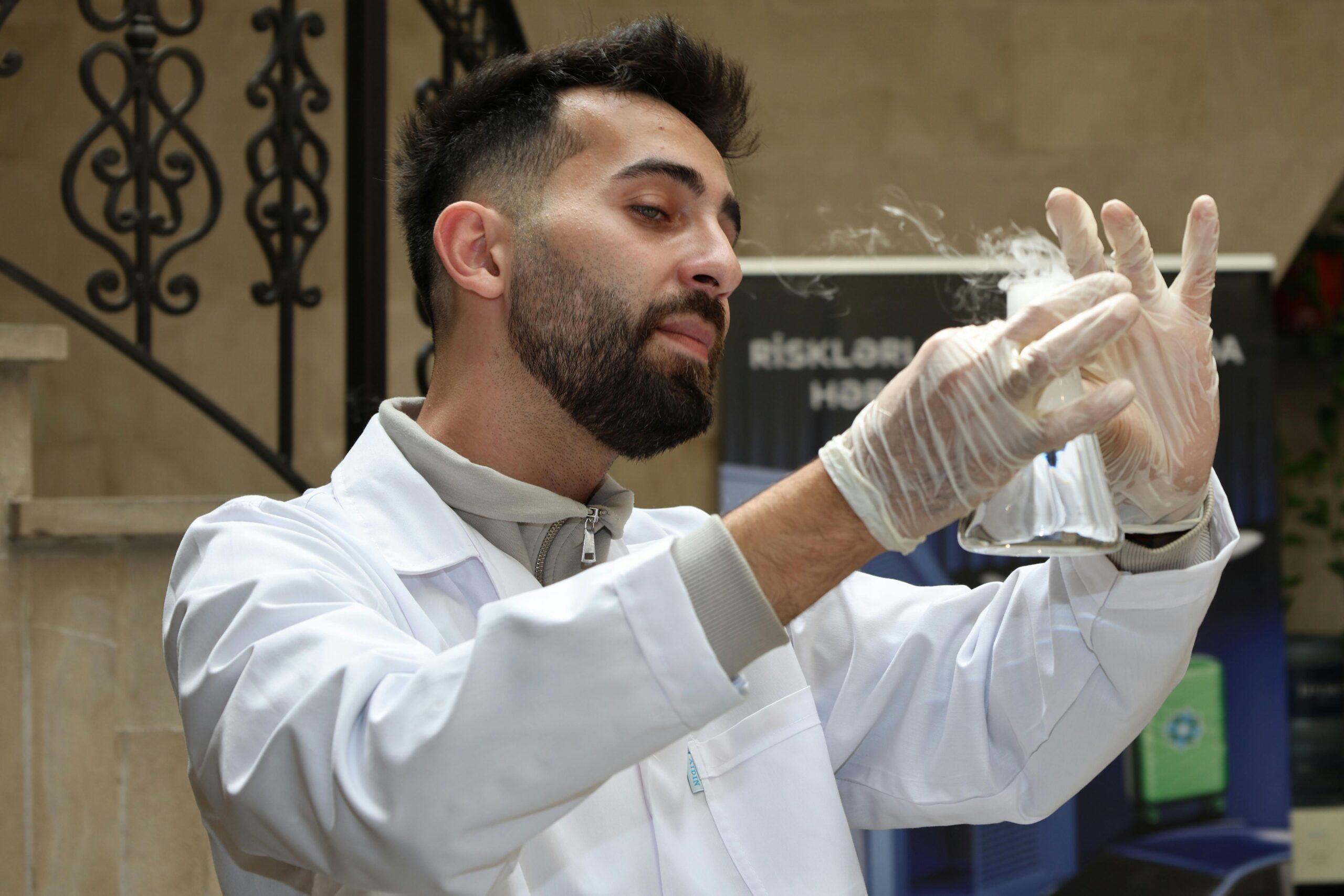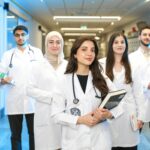- The UFV Advantage: Fostering Tomorrow’s Scientific InnovatorsA Microscopic Look at UFV Biology Research: The Salicylic Acid ProjectFrom Classroom to Laboratory: The Transformative Student ExperienceCultivating a Future in Science: Career Pathways After UFVFrequently Asked Questions
For international students aspiring to build a career in the sciences, choosing the right institution is a monumental decision. It’s not just about the degree; it’s about acquiring practical, hands-on experience that sets one apart in a competitive global market. The University of the Fraser Valley (UFV) in British Columbia has distinguished itself as a remarkable institution where undergraduate students are not just learners but active participants in discovery. This guide explores the pioneering UFV biology research programs, offering a comprehensive look into why this university is a compelling choice for those seeking to study science in Canada and lay the foundation for a successful career.
The UFV Advantage: Fostering Tomorrow’s Scientific Innovators
What truly sets the University of the Fraser Valley apart is its profound commitment to undergraduate research. In many larger universities, research opportunities are often reserved for graduate students, leaving undergraduates with a primarily theoretical education. UFV flips this model on its head. Here, the emphasis is on experiential learning from day one. The university’s smaller class sizes foster a close-knit academic community where students have unparalleled access to their professors. These faculty members are not just lecturers; they are active researchers and dedicated mentors who guide students through the intricate processes of scientific inquiry. This mentorship is invaluable, providing students with personalized support and the confidence to tackle complex research questions. This environment is particularly beneficial for those new to the Canadian education system, as it offers a supportive framework to transition and thrive academically and professionally. The UFV biology research ethos is built on the belief that the best way to learn science is by doing science, a philosophy that empowers students to contribute to meaningful projects and develop a sophisticated skill set long before graduation.
A Microscopic Look at UFV Biology Research: The Salicylic Acid Project
A prime example of the high-caliber scientific investigation at UFV is the work being done on salicylic acid. This compound, widely known as the key ingredient in aspirin, also plays a crucial role in the plant kingdom as a hormone that triggers a plant’s immune response to pathogens. Research at UFV delves into the molecular mechanisms of how plants recognize threats and activate their defenses using salicylic acid signaling pathways. This is not just abstract science; it has profound real-world implications. A deeper understanding of these processes can lead to revolutionary advancements in agriculture, such as developing crops that are naturally more resistant to diseases. This could reduce the reliance on chemical pesticides, leading to more sustainable and environmentally friendly farming practices. Students involved in this UFV biology research are at the forefront of this discovery, working in state-of-the-art laboratories to unravel the genetic and biochemical secrets of plant immunity. They are not merely washing test tubes; they are conducting experiments, analyzing data, and contributing to a body of knowledge that could shape the future of global food security.
This hands-on involvement provides a learning experience that no textbook can replicate. Key takeaways from participating in such advanced research include:
- Practical Laboratory Skills: Students gain proficiency in sophisticated techniques like genetic analysis, molecular biology protocols, and chromatography, all of which are highly sought after by employers in the biotech and research sectors.Critical Thinking and Problem-Solving: Research is rarely straightforward. Students learn to troubleshoot experiments, interpret complex data, and think critically to overcome scientific challenges.Understanding the Scientific Process: Participants gain a deep, firsthand understanding of how scientific knowledge is created, from forming a hypothesis to designing experiments and eventually publishing findings.Contribution to Meaningful Work: Knowing that their work contributes to solving real-world problems, such as improving crop resilience, provides an immense sense of purpose and motivation.
From Classroom to Laboratory: The Transformative Student Experience
The journey for a science student at UFV is a dynamic transition from theoretical knowledge to practical application. This transformation is central to the university’s educational mission. Students in programs like biology, biochemistry, and genetics are encouraged, and often required, to engage in research projects. This integration ensures that what is learned in the lecture hall is immediately reinforced and expanded upon in the laboratory. For an international student, this experience is particularly enriching. It helps build a strong professional network with faculty and peers and provides tangible accomplishments to include on a resume or graduate school application. The confidence gained from successfully executing a research project, presenting findings at a symposium, or even co-authoring a scientific paper is immeasurable. This process equips students not only with technical abilities but also with essential soft skills like communication, teamwork, and project management. They learn to articulate complex scientific concepts clearly and concisely, a skill vital for any career. The UFV biology research experience is designed to be a capstone of their undergraduate education, transforming them from students of science into emerging scientists ready to make their mark.
Cultivating a Future in Science: Career Pathways After UFV
Graduating with a science degree from UFV, fortified by substantial research experience, opens a wide array of career opportunities within Canada and abroad. The practical skills acquired are directly applicable to numerous roles in high-demand sectors. Graduates are well-prepared for positions such as Laboratory Technicians, Research Assistants, and Environmental Scientists. The robust training in genetics and molecular biology makes them strong candidates for the burgeoning biotechnology and pharmaceutical industries. Furthermore, the strong academic foundation and research portfolio developed at UFV provide a significant advantage for those wishing to pursue further education. Many graduates go on to successful Master’s and PhD programs at top-tier universities, with their undergraduate research experience setting them apart from other applicants. For international students, a Canadian degree combined with this level of specialized training can be a vital component of a long-term immigration strategy, aligning with pathways like the Express Entry system’s Federal Skilled Worker Program or various Provincial Nominee Programs that prioritize candidates with Canadian education and skilled work experience. By choosing UFV, students are not just investing in an education; they are investing in a future filled with professional possibilities in the vibrant Canadian scientific community.
Frequently Asked Questions
What is the focus of UFV’s biology research highlighted in the article?
The article highlights research into salicylic acid, a plant hormone crucial for activating a plant’s immune response to pathogens. This UFV biology research has significant potential applications in agriculture for developing disease-resistant crops.
How does UFV support undergraduate students in research?
UFV supports undergraduate research through its model of smaller class sizes and direct mentorship from faculty. This approach provides students with personalized guidance and hands-on opportunities to work on meaningful projects in advanced laboratories.
What are some key skills students gain from the UFV biology program?
Students gain a mix of technical and soft skills, including proficiency in laboratory techniques, data analysis, critical thinking, problem-solving, and effective scientific communication. These skills are highly valued in both professional and academic settings.
What career opportunities can a UFV science degree lead to in Canada?
A science degree from UFV prepares graduates for careers as Laboratory Technicians, Research Assistants, and Environmental Scientists. The strong research background also serves as an excellent foundation for pursuing graduate studies or qualifying for Canadian immigration programs for skilled workers.
Talk to us to find out more. ->
The content above is not intended to provide legal advice or opinions of any kind and may not be used for professional or commercial purposes.







